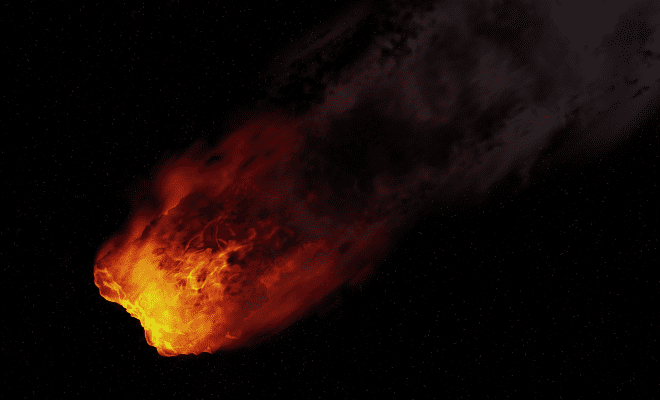
News
What Would Happen in the Aftermath of an Asteroid Impact?
Spoiler: A massive space rock hitting the Earth wouldn’t turn out so great, who’d of thought? But seriously, an asteroid impact would spell out some serious consequences for Earth’s inhabitants and their future of survival.
If a big asteroid were to hit Earth, it would come hurtling into the atmosphere at extremely high speeds, and upon impact, would create intense shock waves and savage winds of up to 1,000 mph. These initial shock waves would kill the most living beings within a very wide range practically on impact.
A study conducted by South Hampton University in the U.K. explored the seven effects associated with asteroid impacts – heat, pressure shock waves, flying debris, tsunamis, wind blasts, seismic shaking, and cratering. Of these effects, the researchers ranked each from most to least deadly, depending on the number of lives that would be potentially lost due to each effect.
The study concluded that overall, wind blasts and shock waves were the most likely to claim casualties. These two effects would be the cause of more than 60% of all casualties caused by a large asteroid impact. They wouldn’t be pretty either. Researchers said that as shock waves arise in atmospheric pressure, it would cause such a severe increase that it would be able to rupture internal organs. As for the wind blasts, these strong gusts of air would be capable of hurling buildings and completely flattening anything in its path.
If the impact were to take place in the ocean, the asteroid would generate enough power to trigger a massive tsunami. If close enough to coastal communities, the tsunami would wreak havoc upon breaking land, though it may lose most of its energy if the impact far off the coast.
The heat generated by an asteroid would reach thousands of degrees, resulting in widespread fires that would burn uncontrollably for many days. Thankfully, the heat could be avoided if affected populations were to hide in basements or underground structures.
In the aftermath of an asteroid impact, lead study author Clemens Rumpf said: “Larger asteroid would be expected to cause long-lasting environmental changes, such as dust deposition in the atmosphere and subsequent dimming of sunlight.” The loss of sunlight, along with billowing clouds of dust and debris would wreak havoc on the fragile nature of the Earth’s ecosystem.
Crops would wither and die, and the air would become exceptionally difficult to breathe. Eventually, life would be very difficult to sustain without a reliable source of sunlight and breathable air. This is exactly what scientists think caused the extinction of the dinosaurs about 66 million years ago.
Thankfully, asteroid impacts are quite rare. There are a few asteroids currently known to have a low probability of hitting Earth in tens to hundreds of years. NASA and several other foreign space organizations are currently working on developing procedures to prevent future asteroids impacts, but there is still much to be done.





0 comments